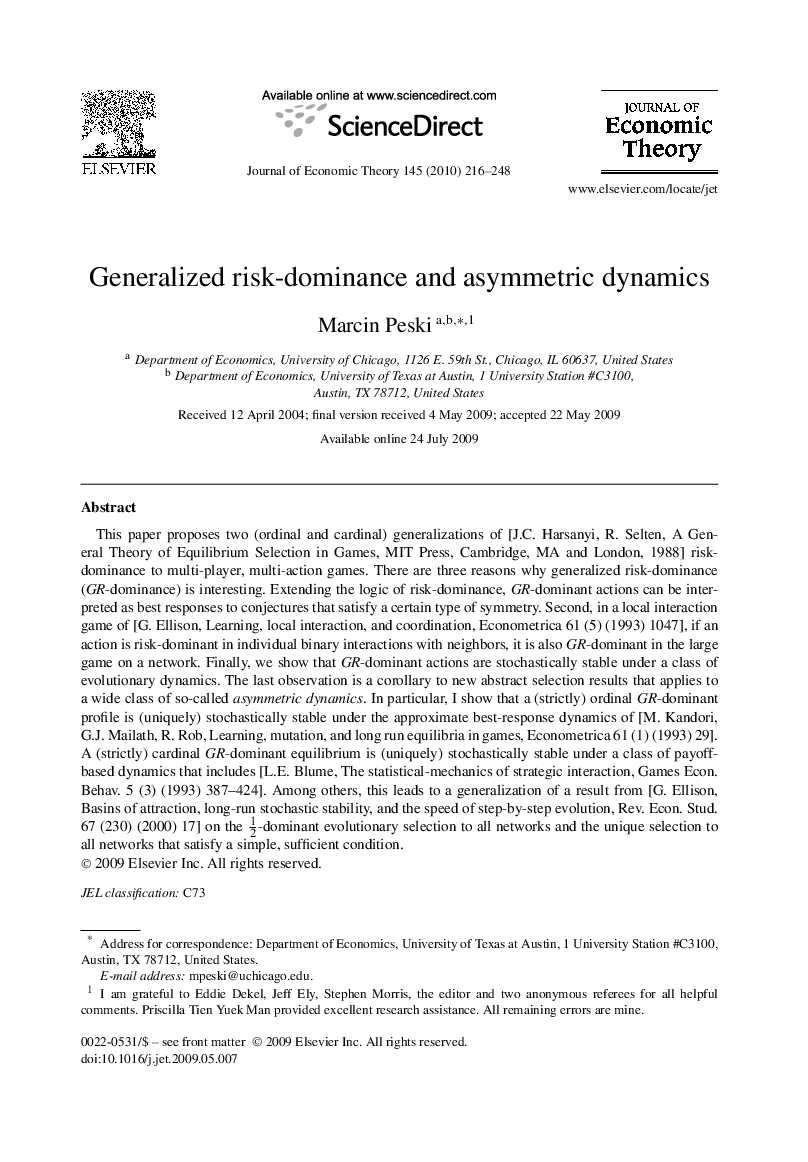| کد مقاله | کد نشریه | سال انتشار | مقاله انگلیسی | نسخه تمام متن |
|---|---|---|---|---|
| 957592 | 928535 | 2010 | 33 صفحه PDF | دانلود رایگان |

This paper proposes two (ordinal and cardinal) generalizations of [J.C. Harsanyi, R. Selten, A General Theory of Equilibrium Selection in Games, MIT Press, Cambridge, MA and London, 1988] risk-dominance to multi-player, multi-action games. There are three reasons why generalized risk-dominance (GR-dominance) is interesting. Extending the logic of risk-dominance, GR-dominant actions can be interpreted as best responses to conjectures that satisfy a certain type of symmetry. Second, in a local interaction game of [G. Ellison, Learning, local interaction, and coordination, Econometrica 61 (5) (1993) 1047], if an action is risk-dominant in individual binary interactions with neighbors, it is also GR-dominant in the large game on a network. Finally, we show that GR-dominant actions are stochastically stable under a class of evolutionary dynamics. The last observation is a corollary to new abstract selection results that applies to a wide class of so-called asymmetric dynamics. In particular, I show that a (strictly) ordinal GR-dominant profile is (uniquely) stochastically stable under the approximate best-response dynamics of [M. Kandori, G.J. Mailath, R. Rob, Learning, mutation, and long run equilibria in games, Econometrica 61 (1) (1993) 29]. A (strictly) cardinal GR -dominant equilibrium is (uniquely) stochastically stable under a class of payoff-based dynamics that includes [L.E. Blume, The statistical-mechanics of strategic interaction, Games Econ. Behav. 5 (3) (1993) 387–424]. Among others, this leads to a generalization of a result from [G. Ellison, Basins of attraction, long-run stochastic stability, and the speed of step-by-step evolution, Rev. Econ. Stud. 67 (230) (2000) 17] on the 12-dominant evolutionary selection to all networks and the unique selection to all networks that satisfy a simple, sufficient condition.
Journal: Journal of Economic Theory - Volume 145, Issue 1, January 2010, Pages 216–248